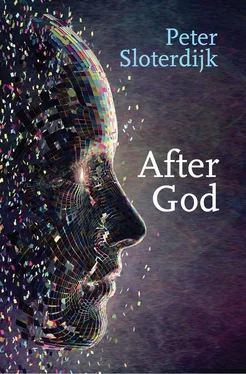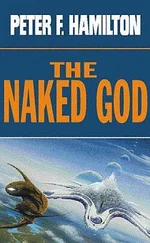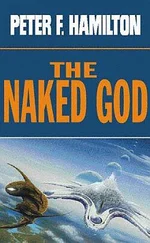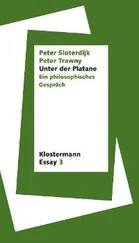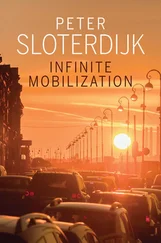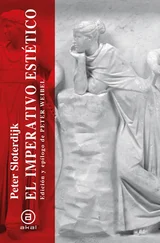Classification: LCC BT83.5 .S5613 2020 (print) | LCC BT83.5 (ebook) | DDC 210--dc23
LC record available at https://lccn.loc.gov/2019034770
LC ebook record available at https://lccn.loc.gov/2019034771
Typeset in 10.5 on 12pt Times by Fakenham Prepress Solutions, Fakenham, Norfolk
Printed and bound in Great Britain by TJ International Limited
The publisher has used its best endeavours to ensure that the URLs for external websites referred to in this book are correct and active at the time of going to press. However, the publisher has no responsibility for the websites and can make no guarantee that a site will remain live or that the content is or will remain appropriate.
Every effort has been made to trace all copyright holders, but if any have been overlooked the publisher will be pleased to include any necessary credits in any subsequent reprint or edition.
For further information on Polity, visit our website: politybooks.com
I would like to thank Ben Acree, Myron Jackson, Oliver Berghof, and especially Manuela Tecusan for their helpful comments on the translation.
1 TWILIGHT OF THE GODS “Every world of gods is followed by a twilight of the gods”*
Rest now, rest, you god!
Richard Wagner, Die Götterdämmerung
The intelligentsia of our culturally forgetful days still remembers, partially, that the Greeks of the classical era used the term “mortals” to refer to human beings. Human beings bore this name because they were conceived of as earthly counterparts of the gods, who were called immortals. Immortality was in fact the only eminent feature of the Greek gods. Their behavior hardly differed from that of humans, with their all-too-humanness.
A century ago, amid the convulsions of World War I, Paul Valéry extended the attribute of mortality to high cultures. We should now know, he assured us, that even the great collective constructs ( nous autres , civilisations ), those integrated by language, law, and the division of labor, are mortal. We should regard it as a happy accident if this immense statement has left behind a trace here and there, in the memory of a culture that bears the old European stamp. “We civilizations” are indeed mortal and, after everything that had happened, we should have taken note of this. No longer should mortality be predicated only of Socrates and his ilk. The term leaves the domain of syllogistic exercises and inundates a continent that does not grasp its Great War. Mortality acquires this new valence not only from the fact that, within four years, more than nine million men were sent to their deaths. What is decisive is that the countless fallen soldiers and civilian casualties seemed to result from the internal tensions of the cultural events themselves. What are cultural nations, and what do civilizations amount to, if they allow such an excess of casualties and self-sacrifices, indeed not only allow it but provoke it from their ownmost [ eigensten ] impulses? What does this mass consumption of life say about the spirit of the industrial age? What could this unparalleled recklessness toward individual existence possibly mean? When applied to civilizations, the word “mortality” also hints at the possibility of suicide.
The shock to which Valéry’s note bore witness reached deeper than his contemporaries could have known. For once, our insight that civilizations could fall was not relegated to distant worlds such as Nineveh, Babylon, or Carthage. It now applied to great civilizations close at hand: France, England, Russia … These were names that, until yesterday, still resonated with us. They were spoken of as though they were metaphysical universals in the form of peoples. They stood for the supertemporal stability that used to be attributed to clans and to their associations into peoples. Since time immemorial, clans were ruled by the law of ancestry. They embodied the duration that flows through the generations, no matter how much individuals come and go. Valéry: “And now we see that the abyss of history is big enough for all.” 1
The twilight of civilization begins at the moment when the inhabitants of the great cultural enclosures suspect that even the most established human systems of the present have not been built for all eternity. They are subject to a fragility that also goes by the name “historicity.” Historicity means for civilizations what mortality means for individuals. In the philosophy of the twentieth century, this idea was applied to individuals under the description of “being toward death.” When related to cultures, it is called historical consciousness.
As a rule, members of the historically affected nations have ignored the idea that their historians are at the same time their thanatologists. Ex officio , thanatologists make the better theologians. Relying on a local point of departure, they leap ahead and assume God’s standpoint at the end of the world and at the end of life. As a rule, historians don’t realize that they are indirectly practicing the perspective of the end when they recall early beginnings.
From a divine perspective, history means nothing but the process of converting what has not yet been into what has been. Only when all being has entered into a state of having been has the “omnipotent god” 2of classical metaphysics reached its goal. Only when it is certain that nothing new will happen any more may God discard the initially intoxicating, but later on compromising attribute of “omnipotence”; this attribute had indeed become increasingly embarrassing and superfluous. At the actual end of history there is neither anything to create nor anything to preserve. Everything that is is there for the sake of what ultimately will be. The dossier of creation is closed. The end God drapes himself in the robe of omnipotence. As soon as knowledge that has become complete is no longer confronted with new tasks on behalf of creativity (or of the “event”), God surveys the universe in its totality. He serenely looks straight through everything that was the case.
In the old European tradition, “apocalypse” designates this moment of looking through things in a comprehensive retrospection. In the strict sense, this means: uncovering all things from the perspective of the end. If everything is complete, everything becomes transparent. The so-called revelations that were available to mortal observers in certain high cultures in the guise of “holy texts” are like vistas into the static beyond that have been fixed at the halfway point. They testify to the fact that higher religions don’t work without rushing things. 3Such pre-haste [ Vor-Eile ] is subject to the temporal schema of impatient faith: already now, but then all the more! Yet, as a rule, religious apocalypses do not deal with real “ultimate concerns.” They wallow in the depiction of tumults before the advent of the great tranquility.
Whoever accepts such messages as truths is able to imagine leaping ahead and partaking of the total view from the end of time. The spheres of such representations are called “worlds of faith.” They are created in order to bridge the gap between nowness [ Jetztzeit ] and eternity. The believer nevertheless remains subject to the law of being on her way, in the realm of the temporary [ im Vorläufigen ]. She knows she can catch up with God only by attaining the same ontological rank in death. This is the case for the ancient Indians as well as for old Europe, and for the domains of Islam no less.
There was a name for those groups of believers who were convinced they could achieve the apparently impossible task of catching up with God media in vita [in the midst of life]. They were called mystics. Thanks to their efforts, transcendence has not remained a completely empty word. These virtuosi of self-renunciation attempted to eschew every sort of separate life outside of God. In this way they devoted themselves to the idea that they had already entered into the beyond here, in this life. Indeed, to die means to give back one’s soul – as the French idiom rendre l’âme expresses it in such a metaphysically fitting way. Yet only when everything has in fact died – whether in advance, or whether at the proper or improper time – will everything that was destined to exist be freed from the compulsion of becoming and of innovation. If we had to say in one sentence what classical metaphysics had in mind, it would be this: it wanted to convert the “world” into participants in the stasis of God’s omniscience. This end was served, among others, by the Stoic and Christian doctrines of providence (Greek pronoia , Latin providentia ), which were supposed to secure for the future God’s exposed flanks.
Читать дальше
